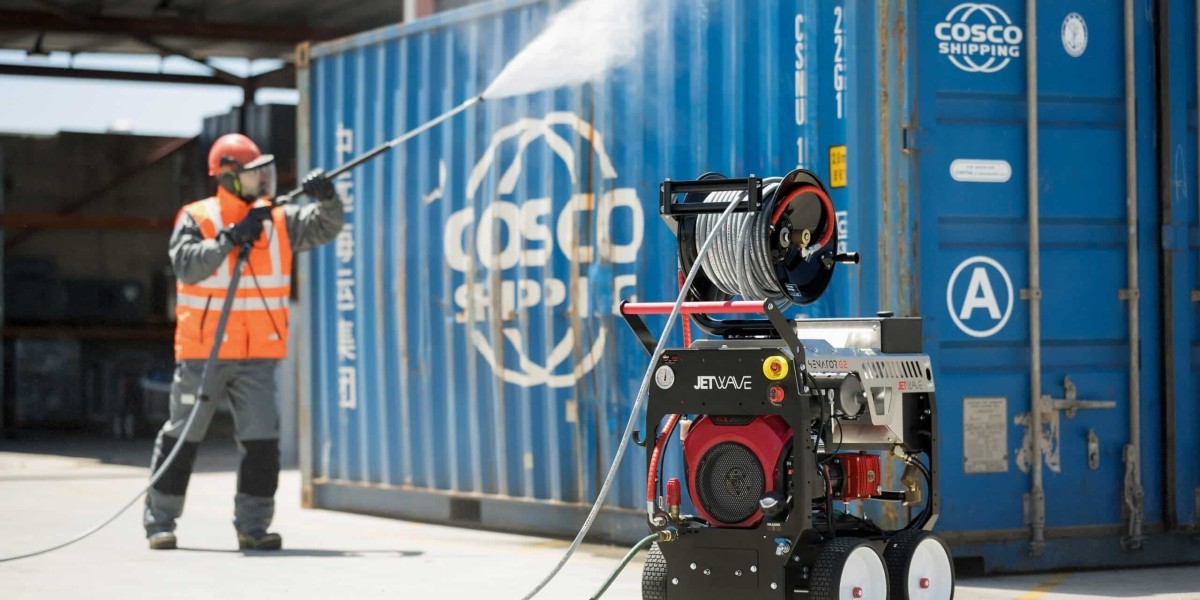In heavy-duty settings where dirt, grime, oil, and debris build up quickly—such as factories, transport depots, construction sites, and food processing plants—maintaining a clean workspace isn’t just aesthetic. It's essential for safety, efficiency, and extending the lifespan of equipment. That’s when a reliable industrial pressure cleaner becomes a business-critical asset.
Why Industrial Pressure Cleaners Outperform Consumer-Grade Units
When it comes to serious cleaning, the industrial pressure cleaner delivers unmatched performance. These machines offer high PSI and flow rates, rugged construction, and components built to last. Unlike consumer-grade units, they are designed for hours of continuous use and to withstand harsh conditions without faltering. With heavy-duty brass or triplex pumps, corrosion-resistant frames, and powerful petrol, diesel, or electric engines, industrial cleaners offer water pressure and coverage ideal for even the toughest jobs
What Makes an Industrial Pressure Cleaner Special?
Industrial pressure cleaners differ from residential models in several key ways:
Higher Pressure & Flow: They typically operate between 3,000 and 7,000 PSI*, with water flow of 10–30 LPM or more, delivering effective cleaning on large surfaces quickly.
Durable Construction: Built with stainless or powder-coated steel frames, brass pump heads, ceramic pistons, and commercial-grade engines or motors.
Versatility in Power Source: Available in electric, petrol, and diesel configurations. Electric units are quieter and well-suited for indoor tasks, while fuel-powered ones provide portability and power ideal for off-grid or outdoor use.
Optional Hot Water: Some models include integrated boilers to supply heated water, which dramatically improves cleaning of grease, oils, and hardened residues.
These features let industrial cleaners work continuously, manage heavy workloads, and remain reliable over years of frequent use.
Typical Applications of Industrial Pressure Cleaners
Industrial pressure cleaners are used across many sectors, including:
Factories and Food Plants: Sanitize floors, walls, and machinery. Hot-water models comply with hygiene standards.
Transport Fleets: Clean trucks, trailers, and shipping containers efficiently and safely.
Construction Sites: Blast mud and concrete residue off heavy equipment, scaffolding, and machinery.
Mining & Agriculture: Remove dirt and grease from earth-moving vehicles and agricultural tools.
Public Infrastructure & Municipalities: Maintain clean sidewalks, loading bays, public toilets, and equipment without harmful chemicals
Key Benefits of Choosing an Industrial Pressure Cleaner
| Benefit | Description |
|---|---|
| Efficiency | High pressure and flow reduce cleaning time, saving on labour and downtime |
| Safety & Hygiene | Hot-water cleaning removes biofilms and grease without harmful chemicals, improving workstation cleanliness. |
| Surface Preservation | Water-based cleaning avoids abrasion and corrosion seen with chemicals or brushes. |
| Longevity & Durability | Industrial units last years with proper maintenance thanks to engineered components. |
| Regulatory Compliance | Helps businesses meet sanitation and safety standards in regulated industries. |
How to Choose the Right Industrial Pressure Cleaner
Consider these factors:
PSI and Flow Rate: Higher pressure for tough residue; higher flow for faster rinsing.
Power Type: Use electric indoors or petrol/diesel for remote flexibility.
Hot vs Cold Water: Hot cleaners work better on grease and oils; cold is fine for general dirt removal.
Mobility: Options include trolley carts, skid-mounted units, or trailer-mounted systems.
Accessories & Features: Wide nozzle range, built-in filtration, chemical injection, hose reels, and safety systems enhance usability.
Note: Matching features to your cleaning needs is essential—don’t overspend on features you won’t use, and don’t settle for underpowered specs.
Maintenance Tips
To get the most out of your industrial pressure cleaner:
Inspect hoses, fittings, and nozzles regularly.
Change pump oil and engine oil per the manufacturer’s schedule.
Flush the system after detergent use to prevent internal corrosion.
Store units in dry, covered areas to avoid moisture damage.
Use compatible nozzles for the intended surface to prevent damage and ensure safety.
Frequently Asked Questions (FAQs)
Q1: What pressure and flow rate are right for industrial cleaning?
A: Look for machines offering 3,000–7,000 PSI and 15–30 LPM depending on task severity and operational speed.
Q2: Should I choose a hot or cold water unit?
A: Cold units work for general dirt, while hot water units deliver superior results on grease and oil and improve hygiene.
Q3: Are petrol and diesel units safe for indoor use?
A: Only with excellent ventilation. Electric models are better for indoor environments to eliminate exhaust risks.
Q4: How long will an industrial cleaner last?
A: With proper upkeep, many units operate effectively for 5–10+ years in frequent-use applications.
Q5: Can chemical detergents be used in these systems?
A: Yes—many models have detergent injection systems for enhanced cleaning effectiveness.
Why Jetwave Group Is a Trusted Choice for Industrial Cleaning Equipment
When investing in industrial cleaning equipment, selecting a manufacturer with engineering excellence and local support is key. Jetwave Group fits the bill with Australian-designed and built industrial pressure cleaners tailored for the toughest cleaning tasks and harshest environments. Their machines combine rugged frames, high-performance pumps, long-life engines, and advanced safety systems engineered for long-term industrial use. With national service coverage and export capability, Jetwave Group delivers powerful, reliable solutions businesses rely on every day—to get the toughest jobs done right.








